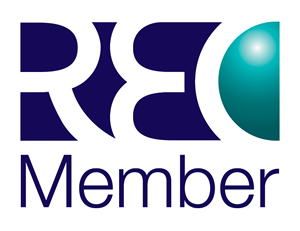Legal talent shortage: Bridging the gap between demand and supply
Law is the most popular degree subject in the UK. According to UCAS, over 126,000 people applied to study Law degrees last year and around 75% received an offer. That’s a huge volume of students, and on the surface, it might suggest there’s a rich pipeline of legal talent entering the profession every year. But here’s the disconnect: while interest in studying law is high, recruiting legal professionals at all levels, from legal assistants to heads of departments, remains one of the most difficult and competitive areas of the jobs market.
Demand is high, supply isn’t
Right now, the legal market is facing a simple but stubborn imbalance: there are far more vacancies than there are active candidates. That’s particularly true in practice areas like private clients and conveyancing, where demand from law firms continues to grow, but movement in the market is painfully slow.
Many of the people in these roles are happy where they are and don’t see the need to move unless something exceptional comes along. And for those not already in the sector, breaking in can be a challenge. Law is notorious for its specific experience requirements and many firms are still reluctant to hire on potential rather than background.
Let’s talk about expectations
One of the toughest parts of recruiting in law right now is the rigidity on both sides. Employers want someone with a near-identical background to the person they’re replacing. Candidates are crystal clear on what they want and how much they want for it. The middle ground? Not always easy to find.
And then there’s the issue of pigeon-holing. Someone might have great generalist legal experience or have worked adjacent to a private client, but unless they tick every single box, they’re often overlooked, despite being able to learn quickly or bring transferable strengths. That’s something we try to challenge, but it requires open conversations and realistic expectations on both sides.
Transparency matters more than ever
In a market like this, there’s no room for sugar-coating. We’re honest with clients when we know a brief isn’t landing. We’re honest with candidates about what’s possible. And we believe that clarity helps everyone.
Sometimes it means encouraging clients to look again at what the role really needs. Sometimes it means asking whether salary or bonus structures are truly competitive. Sometimes, it means advising a longer-term approach and building relationships now for roles that might open 6 or 12 months down the line. This is a market where the “easy win” rarely exists. The firms getting ahead are the ones prepared to flex or plan far enough in advance that they’re not scrambling when the need becomes urgent.
The hidden talent pools
Here’s the thing about legal professionals: once they’re in a good role, they tend to stay. That means the most capable people aren’t trawling job boards. They’re not searching for a new job every year. In fact, it’s rare to find a Head of Conveyancing actively on the market. If you want to hire them, you need to think differently. Appealing to passive candidates, those not in the job search, takes time, it takes trust and it takes that kind of insight.
What works in a tough legal market?
The legal market isn’t easy, but there are ways through it. In fact, when you know what to look for, you start to see patterns: what makes people move, what makes roles stand out and why some firms consistently attract talent while others struggle.
The most successful hires often come from firms that stay open-minded. They know that a title isn’t everything and that great people sometimes bring adjacent experience, not identical. They’re realistic about the market but optimistic about what’s possible and they’re prepared to shape a role if the right person comes along.
We also find that clarity goes a long way. Candidates want honesty about salary, structure, workload, flexibility. If you can offer that, you’re already ahead. Because in a market where demand outweighs supply, being upfront and clear is a strength.
Finally, the firms that thrive are the ones who are always thinking a step ahead. They’re not just hiring for now. They’re building teams for what’s next and making space for people who can grow with them. That’s where we see real progress. Not just filling a vacancy but attracting the kind of legal talent that sticks and shapes the future of your firm.


